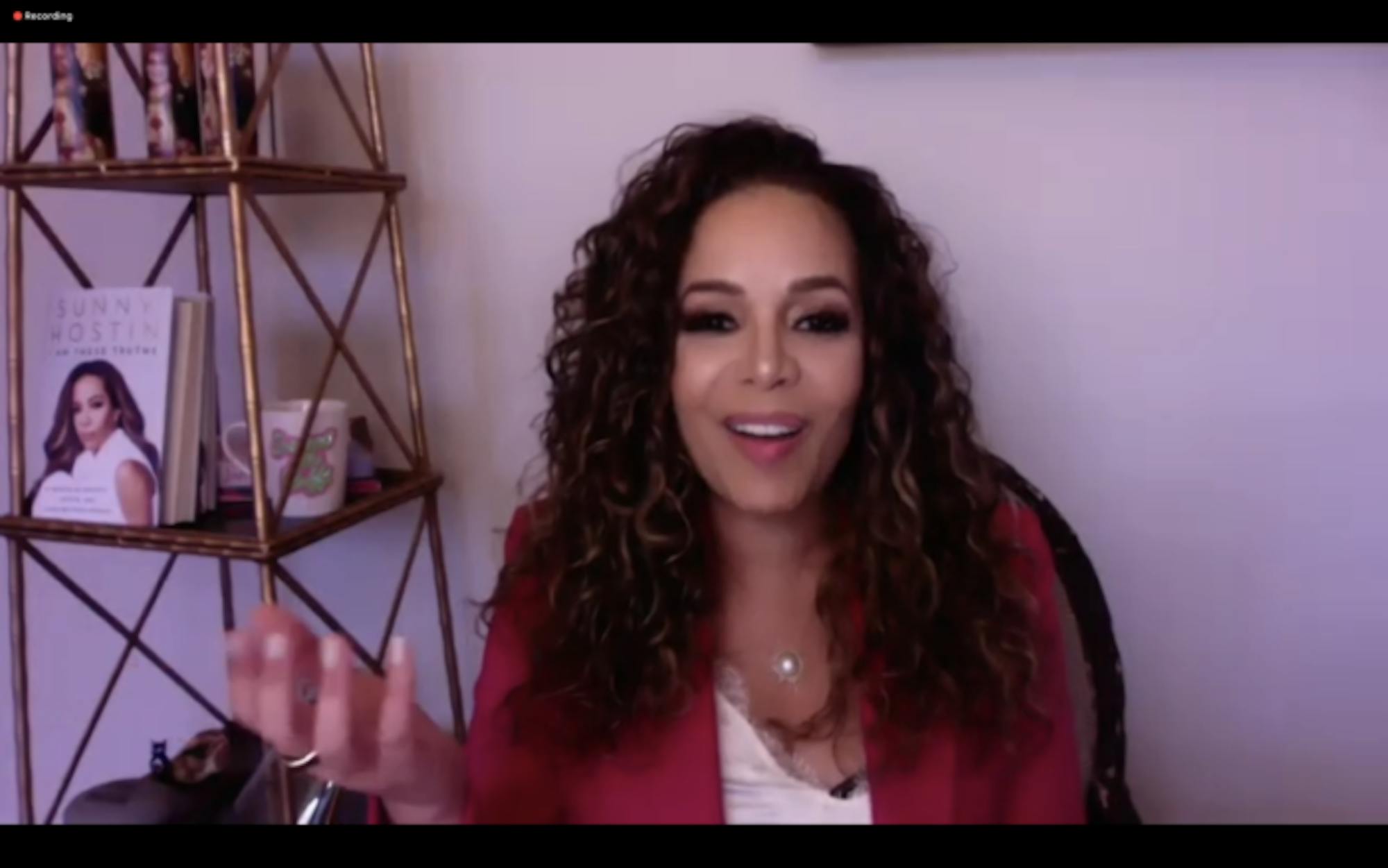The Notre Dame Klau Center’s “Building an Anti-Racist Vocabulary” series hosted three-time Emmy award winner Sunny Hostin — ‘94 Notre Dame Law alumna and co-host of “The View” — as their guest speaker of the week. In addition to her role as a daytime program host, Hostin is also senior legal correspondent, analyst for ABC News and a member of the advisory board of the Klau Center.
Friday’s segment examined the term “identity” as it operates in the context of society. Hostin explores this concept in her newly-released narrative “I Am These Truths: A Memoir of Identity, Justice, and Living Between Worlds.” She describes identity as being a complex topic that has been “demonized” in society, specifically in the political sphere.
“I think, at its core, the question is ‘Who am I and how is that informed?’” Hostin said. “And I think that many sociologists and psychologists will tell you that it is informed by the mirror in which others see us.”
According to Hostin, this mirror is often influenced by others — friends, parents, employers and the media — instead of just individual self conception.
“I think ultimately, people seem to want to know what you are in order to decide who you are, to determine how they should treat you,” Hostin said. “My hope is that people will know that they get to determine their identity and get to determine their worth and get to determine their value, and in so doing, they get to tell others how they will be treated.”
Hostin’s identity, she said, has consistently been questioned throughout her life because of her mixed racial and ethnic background, as she belongs to both the Black and Latina communities. She names several instances when this issue has impacted her life, including her time on “The View.”
“I applied to an audition for ‘The View,’ my current position, and they were looking for a Latina, and I was given the job,” Hostin said. “Two weeks before the show, my agent called me and said that they decided to go in a different direction. And I was like, ‘What direction is that? I have a deal sheet.’ And the response was, ‘They did not believe that you were Latina enough.’”
She said the issue was that she did not fit the “rubric,” or the way America believes Latinas should look. Though she is on “The View”currently, she continued to question her identity.
This same experience happened again when Hostin’s executive producer did not consult her about guests for MLK Day because he said people did not consider her Black.
Instances like these ushered in the questions of belonging. Hostin said she does not have a definitive answer for these questions, but that people should not have to choose between communities.
Hostin said that injustice associated with the communities she is a part of led her to pursue a career path in the legal field. She specifically recalled seeing a lot of violence while growing up, even within her own family.
When Hostin was seven, she said she saw her uncle stabbed in front of her and recalled the conversation of the police who excused the case on the basis of a rough neighborhood. Hostin’s family tried to prosecute the case but met with no success. Experiences like these led Hostin to her interest in prosecution, especially for under-served communities.
“What I say is that if we are going to have true equity in our system — and our system is flawed in many ways — as people of color, we have to be in the room where it happens,” Hostin said. “Knowing your rights is such a powerful thing. Being able to advocate for other people is such a powerful thing, and you’ve got to use it for good.”
Hostin demonstrated this philosophy by highlighting a specific case in her career. After hearing from a friend about Trayvon Martin, a black teenager who was fatally shot in Florida and the subsequent trial, Hostin pitched coverage of the case to CNN. They responded by saying it was not a “national story,” but Hostin kept pushing the issue. Eventually, she went to Anderson Cooper of CNN, who gave Hostin the story.
Hostin said she wanted people to learn the personal details about Martin instead of only the negative details. After writing the piece, which included pictures of Martin doing the activities he enjoyed, Hostin asked to review the final product. Her producer initially declined her request.
When she viewed the final version, none of the pictures Hostin had asked to be included were there.
“I just kind of blew,” Hostin said. “It was really important that I was in the room, as had I not been in that room, that victim-blaming, victim-shaming narrative, would have been perpetuated on my story that had been entrusted to me by my friend, and I would have left him down. And I would have been horrified because once it was out there on CNN — I was one of the first national reporters to do the story — you can’t unring that bell.”
Hostin expanded upon this topic of racial stereotypes in America, specifically with regards to the Black community. Hostin mentioned “the talk” black families have with their children coming of age in a racially prejudiced society, which she said she had to have with her own son.
Hostin said that discussion should also be shared in white families.
“For some reason, there seems to be this reluctance to talk about race,” Hostin said. "This is a discussion; we talk about what Blackness means. Whiteness means something too.”
Hostin tied these concepts back to her career choice and how they can affect several more people in society.
“I think that the moral of the story is, we have to be in the room where it happens,” she said. “Once we get into that room, we have to expend whatever political power that we have on these kinds of things.”













